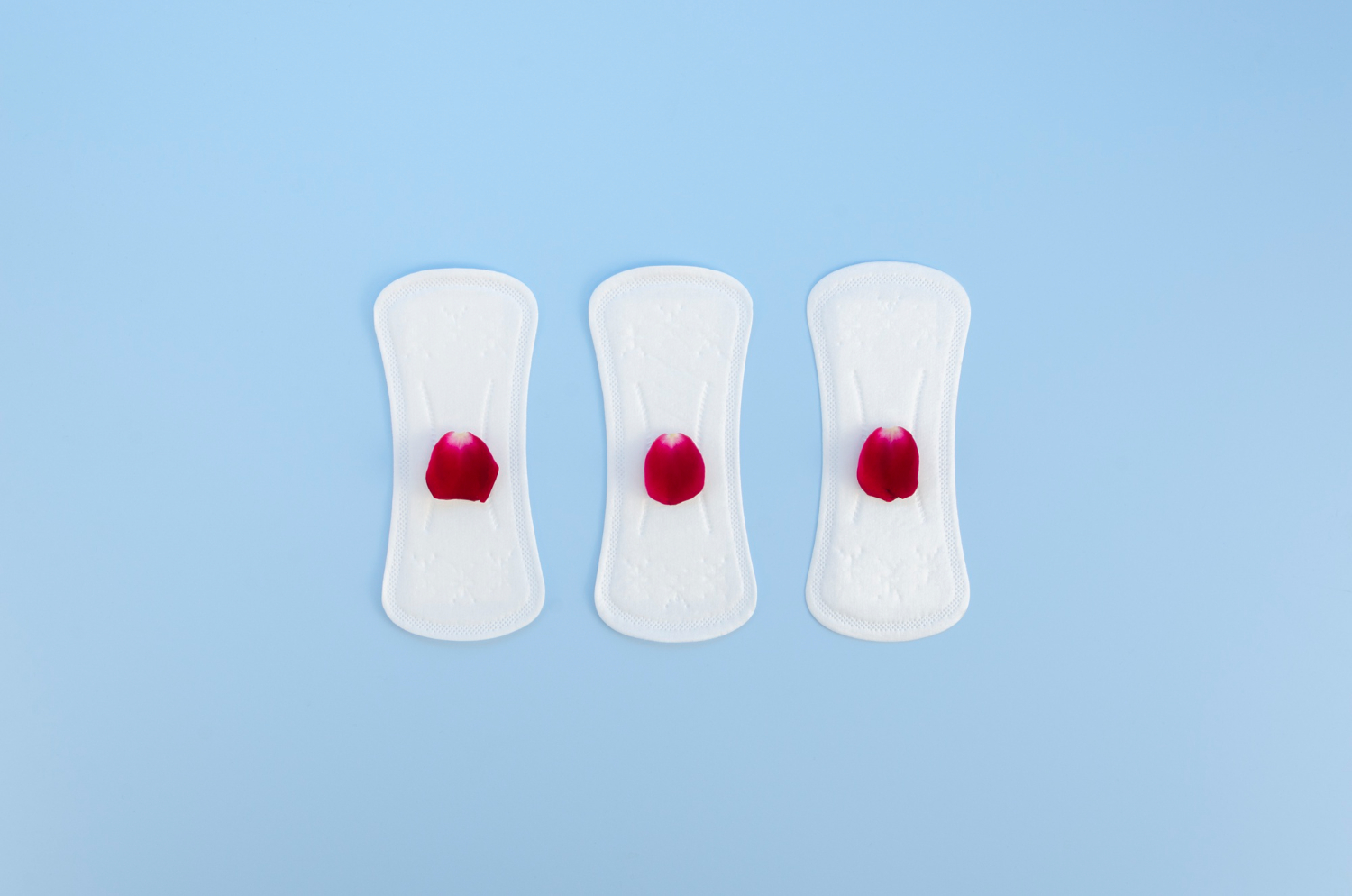Is Spotting Before Your Period Bad?



Spotting refers to the light vaginal bleeding that occurs outside your regular period, typically involving small amounts of blood that you can notice after you've used the restroom, either on the toilet paper or in your underpants if you've changed. This is known as abnormal uterine bleeding, sometimes called intermenstrual bleeding or "vaginal spotting." There are many causes of vaginal spotting, which will be discussed in detail below.
It usually is safe to ignore spotting that occurs before your period. It is possible that it is an early symptom of pregnancy or related to changes in hormone levels. In certain instances, though, it may indicate a more serious medical issue. Here are a few reasons you might get spotting before your period, what's expected, and when you should go to the doctor.
Vaginal spotting is not uncommon among non-pregnant, reproductive-age women. There are several reasons responsible for your spotting, which are identifiable based on your symptoms.
The first trimester of pregnancy often sees some spotting. The bleeding is often minimal and might have a pink, crimson, or brown hue. Spotting isn't a cause for concern but should be consulted with your doctor, especially if you encounter heavy bleeding or pelvic discomfort, as these symptoms may indicate that you have an ectopic pregnancy or that you are having a miscarriage.
You may get some spotting between your periods if you are on a form of contraception. Still, it can also occur naturally or if you do any of the following:
Start using a birth control technique that relies on hormones.
Missing doses or taking birth control pills in a manner that is inconsistent with the directions provided on the packaging.
Alter the method of birth control or the dosage.
Long-term usage of birth control is highly recommended.
In some instances, contraceptives are used to treat irregular bleeding between periods. In situations where your symptoms do not improve, speak with a doctor for a possible recommendation for a different birth control method.
Ovulation spotting appears as light bleeding when your ovaries release an egg, typically 14 days before menstruation. The spotting may have the appearance of pale pink or red. This type of spotting will usually only last for one to two days in the middle of your cycle.
Read more: Should you use a period tracker?
High-stress levels can influence your body's biology, including the menstrual cycle. Some women may get vaginal spotting as a result of a physical concern (weight loss or gain, illness, poor diet, over-exercising) or emotional stress (depression, anxiety, worry, insomnia).
This is because the body will increase the amount of the hormone cortisol, also known as the stress hormone when you are under stress (either physical or emotional). This rise in cortisol also causes a reduction in the amount of oestrogen and progesterone produced.
There may be a period as you approach menopause in which you do not experience ovulation. Perimenopause is the name given to this period of transition. When going through perimenopause, your periods may become more unpredictable, and you may even start to spot. It's possible that you won't have periods at all or that your periods will be lighter or heavier than usual.
Cancer
Certain cancers can cause abnormal bleeding, spotting, and other forms of vaginal discharge. These cancers may include endometrial (uterine), cervical cancer, ovarian cancer, and vaginal cancer. Spotting does not often signify cancer, but it needs to be consulted with a doctor, especially if you've already been through menopause.
Implantation spotting may occur during the attachment of a fertilized egg to the inner uterine lining, which occurs a few days before the start of your next period. This bleeding will normally be lighter than a usual period bleeds and may be accompanied by some symptoms, including:
headaches
nausea
changes in temperament
changes in temperament
discomfort or pains in the lower back
exhaustion
Implantation bleeding does not harm a foetus but might require medical attention if heavy bleeding is experienced while pregnant.
Read more: How to delay your period?
Polyps are benign tissue development in several body parts, including the cervix and the uterus. The vast majority of polyps are noncancerous and harmless. Mild bleeding after sexual activity, light bleeding throughout periods, and atypical discharge are all symptoms that cervical polyps may cause. Treatment is not necessary unless they're causing bothersome symptoms like pelvic pain or other symptoms.
Uterine polyps can be seen on imaging tests like ultrasounds. Only a minute percentage become cancerous, as they are most often just benign growths. These polyps can cause irregular menstrual bleeding, heavy periods, vaginal bleeding after menopause, and infertility. Some people may only experience light spotting from polyps, and others may experience no symptoms.
Irregular bleeding between periods can signify polycystic ovary syndrome (PCOS) when a person's ovaries or adrenal glands create a high quantity of androgens, sometimes known as "masculine" hormones. It can affect regular menstrual periods and make it harder to get pregnant.
Read more: Are painful periods a sign of good fertility?
Sexually transmitted infection
Spotting between periods or after having sex might mean you have a sexually transmitted infection (STI), such as chlamydia or gonorrhoea. Other STIs include trichomoniasis and hepatitis. Other signs of STIs include the following:
urination that is severe or burning; urination that is severe or burning;
vaginal discharge;
itching in the vagina or the anus;
pelvic discomfort
Visit a doctor if you have concerns about possibly having an STI. Early detection can contribute to more effective treatment of some STIs.
Uterine fibroids are growths on the uterus, sometimes affecting fertility and making conception difficult.
There are cases in which women with uterine fibroids do not report any symptoms. Fibroids are generally harmless and can potentially decrease in size on their own.
The underlying cause of your spotting will determine the therapy you receive. Suppose you are getting spots because of an imbalance in your hormones. In that case, your doctor may tell you to take hormone replacement therapy. Antibiotics are often given by doctors when bacteria cause an infection. Get in touch with a physician to get a diagnosis.
Several factors can cause spotting before a woman's period. Some require prompt medical intervention, while you can ignore others. Although relatively common, any vaginal bleeding outside your period could signify early pregnancy or a medical condition.
If spotting happens between your periods, you can assume it is normal. However, if it happens more than once in a row, you should seek medical attention. To learn more about the different health issues women usually encounter, we encourage you to read thoroughly here.










Plus get the inside scoop on our latest content and updates in our monthly newsletter.